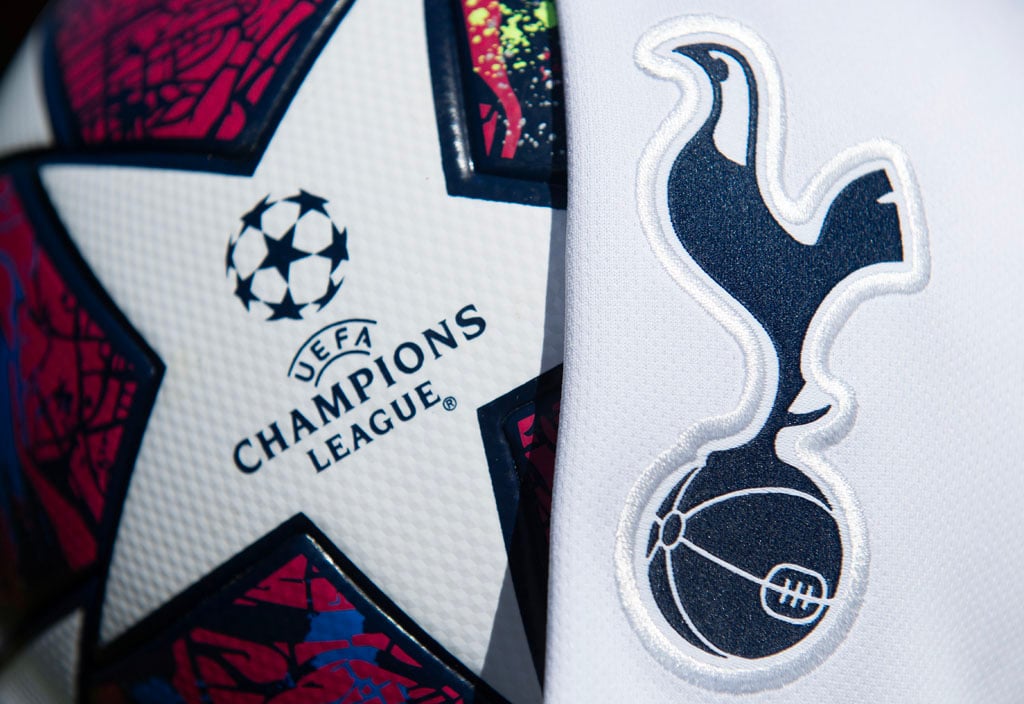Under the lights of the Tottenham Hotspur Stadium on Wednesday, after a two-year wait, Spurs marked a return to the Champions League.
Whilst it was by no means a vintage performance, two headed goals from summer-signing Richarlison helped Antonio Conte’s side secure all three points and make a winning start to Group D.
Although there are no easy games in the Champions League, Spurs’ group could be considered relatively favourable, arguably having the most winnable games against pot one and three teams.
However, the gulf in quality between the sides in Group D is significantly narrower than in others, so whilst at face value Spurs have an “easier” group, this isn’t necessarily the case.
Since the draw, fans have voiced concerns regarding Conte’s past Champions League performances, as for an elite-level manager it could be considered underwhelming.
Pre-Tottenham, Conte’s previous Champions League record equates to 12 wins, 11 draws, and 11 losses (Transfermarkt), however, the real issue for fans is his tendency to exit the tournament perhaps earlier than expected.
Yet, a breakdown of Conte’s European exploits suggests that his record may not be as poor as first thought, so let’s take a look.
MORE SPURS STORIES
In 2012/13, his debut campaign, Conte took Juventus through the group unbeaten eased by Celtic in the round of 16. An unlucky draw in the quarter-final saw the Old Lady face Bayern Munich, with the Germans winning both legs 2-0, but considering they went on to lift the trophy defeat is excusable.
The following season, granted, Conte’s performance was underwhelming, exiting the group as Real Madrid – again the eventual winners – and Galatasaray progressed.
However, a third-place finish saw Juventus parachute into the Europa League, with the Italian guiding them to a semi-final delivering a decent European campaign post-Christmas.
After a three-year absence, Conte led Chelsea through the group stages only to be met by Barcelona in the last 16 but the Catalans, inspired by Messi, cruised through 4-0 on aggregate. Yes, the result isn’t great, but there’s hardly any shame in being the victim of a Lionel Messi-fuelled Barcelona, that’s for sure.
Following another year on the sidelines, Conte again returned to Europe’s top competition with Inter Milan in a tough group alongside Barcelona, Borussia Dortmund, and Slavia Prague. The Nerazzurri finished third behind Barcelona and BVB, but being drawn in what was arguably that season’s “group of death”, one elite side was always sure of an early exit.
However again, despite a premature Champions League exit, Conte put together an impressive Europa League run, beating Ludogarets, Getafe, Bayern Leverkusen, and Shakhtar Donetsk only to fall short in the final to Europa League specialists Sevilla owing to a late Lukaku own goal.
Finally, 2020/21 saw Conte exit again in the group stages, this time in a perhaps less forgiving fashion. Finishing bottom in a group consisting of Real Madrid – again the eventual winners, Borussia Monchengladbach, and Shakhtar Donetsk is unexplainable poor, but really, this is perhaps Conte’s only categoric blemish in an otherwise unfortunate Champions League record.
So now we’ve established that Conte’s illusive “Champions League curse” is more fiction than fact, what exactly is needed to guide Tottenham out of the group.
First and foremost, the apparent golden rule of Champions League group stages is that you must win your home games, and if you can do that, there’s every chance of qualification.
And whilst that’s mostly true, it’s not carved in stone.
Of the 48 home games played by the 16 qualifying teams from last season’s group stage, there were 36 home wins, five draws, and seven losses (Uefa).
Yes, this suggests home dominance is important, but it’s not mandatory, as a further dive into last season’s competition highlights some anomalies.
LOSC – Group G winners, progressed with just one home win and two draws, whilst Villareal – runners-up in Group F, made the knockout stages with a win, draw, and loss in Spain.
But perhaps the biggest irregularity is Atletico Madrid, who claimed second place in Group B with two losses and a draw at home, shattering the mould set by most sides.
Granted, relying on away results isn’t a great strategy, and is certainly to be avoided if possible, but there’s nothing to say it can’t be done.
That being said, to win the group, as Conte will be looking to do, home victories do become crucial, as of the 24 home games played by last year’s group winners, just four – two of which were LOSC – resulted in anything other than a home win.
But what exactly do we need to do to qualify?
Across the last three seasons, an average of 14.1 points was needed to finish first, however, this is largely group-dependent.
Some teams, particularly last season, won every group game, whereas in other instances 11 points would be enough to take top spot.
Over the same three seasons, an average of 10.3 points would have secured second place, although it should be noted that in two of these three seasons an even 10 points would have sufficed.
Considering the competition in our group, 14+ points may be a tough ask, as given the gap in quality is relatively minimal amongst the four sides I’d expect Group D to be low scoring in terms of points. In short, the group winners will be closer to 11 points than 18.
With five games to go, owing to our winning start we’ve given ourselves every chance to qualify, as statistically, Tottenham now have 30% of the points needed to progress.
Now, we must hope the quality Conte has displayed since his arrival continues to translate into Europe, as we have a real chance to emerge as victors from Group D.
Keep up to date with all the latest Tottenham news and opinion by following SpursWeb’s Facebook, Twitter and Instagram accounts.

